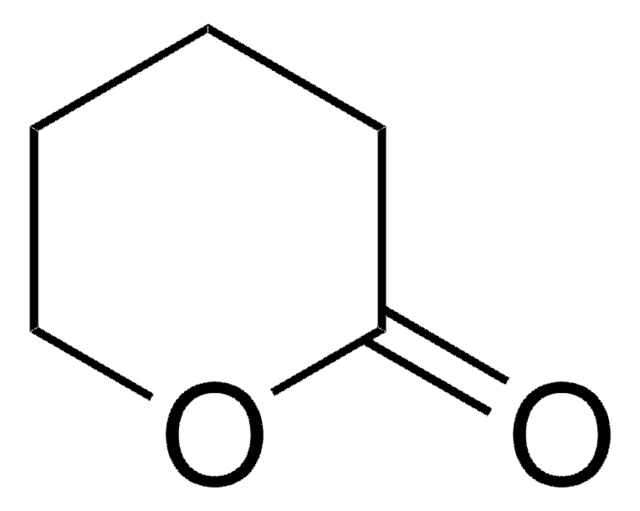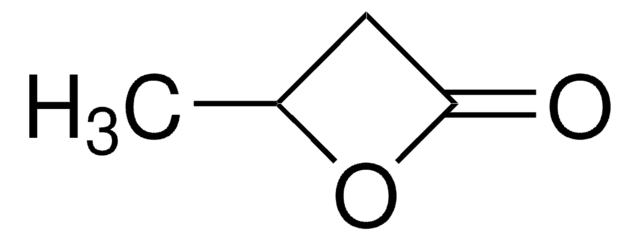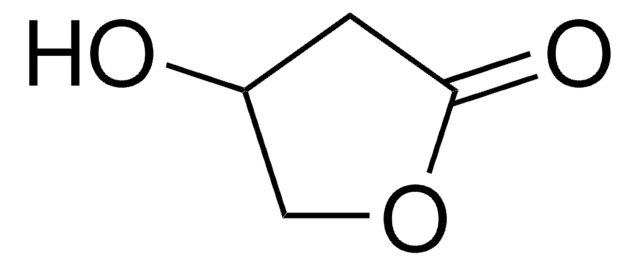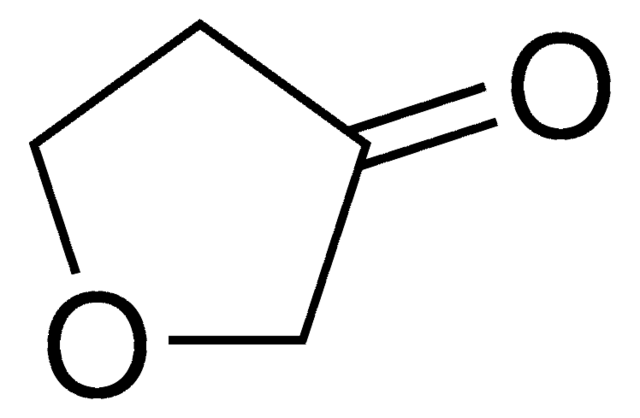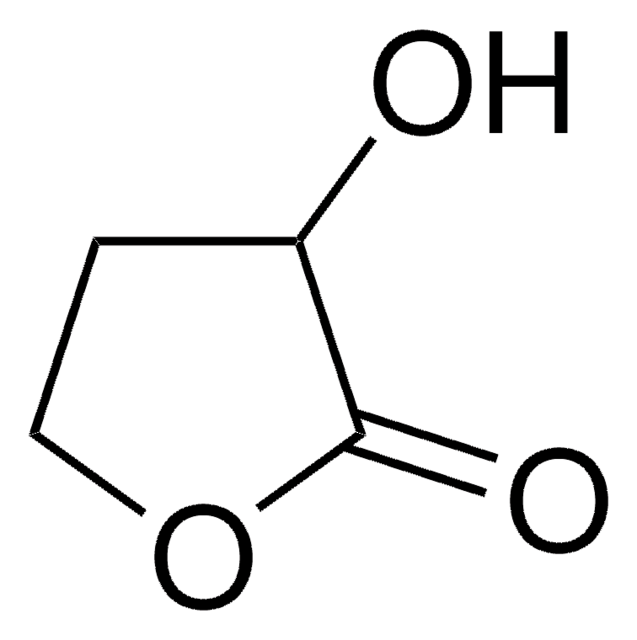B103608
γ-Butyrolactone
ReagentPlus®, ≥99%
Synonym(s):
gamma-Butyrolactone, γ-Hydroxybutyric acid lactone, 4-Hydroxybutyric acid lactone, GBL
About This Item
Recommended Products
vapor density
3 (vs air)
Quality Level
vapor pressure
1.5 mmHg ( 20 °C)
product line
ReagentPlus®
Assay
≥99%
form
liquid
autoignition temp.
851 °F
expl. lim.
16 %
refractive index
n20/D 1.436 (lit.)
bp
204-205 °C (lit.)
mp
−45 °C (lit.)
density
1.12 g/mL at 25 °C (lit.)
SMILES string
O=C1CCCO1
InChI
1S/C4H6O2/c5-4-2-1-3-6-4/h1-3H2
InChI key
YEJRWHAVMIAJKC-UHFFFAOYSA-N
Looking for similar products? Visit Product Comparison Guide
Related Categories
Application
Biochem/physiol Actions
Legal Information
Signal Word
Danger
Hazard Statements
Precautionary Statements
Hazard Classifications
Acute Tox. 4 Oral - Eye Dam. 1 - STOT SE 3
Target Organs
Central nervous system
Storage Class Code
10 - Combustible liquids
WGK
WGK 1
Flash Point(F)
208.4 °F - closed cup
Flash Point(C)
98 °C - closed cup
Personal Protective Equipment
Regulatory Listings
Regulatory Listings are mainly provided for chemical products. Only limited information can be provided here for non-chemical products. No entry means none of the components are listed. It is the user’s obligation to ensure the safe and legal use of the product.
FSL
Group 4: Flammable liquids
Type 3 petroleums
Hazardous rank III
Water soluble liquid
ISHL Indicated Name
Substances Subject to be Indicated Names
ISHL Notified Names
Substances Subject to be Notified Names
JAN Code
B103608-BULK:
B103608-500G:
B103608-25G:
B103608-25ML:
B103608-3KG:
B103608-20KG:
B103608-500ML:
B103608-2.5L:
B103608-VAR:
B103608-2.5KG:
Choose from one of the most recent versions:
Already Own This Product?
Find documentation for the products that you have recently purchased in the Document Library.
Customers Also Viewed
Our team of scientists has experience in all areas of research including Life Science, Material Science, Chemical Synthesis, Chromatography, Analytical and many others.
Contact Technical Service